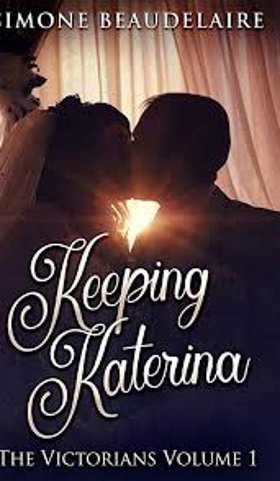a series of minor arpeggios with her left hand while the right began to form the
mournful chords of the famous “Moonlight Sonata.”
Though her eyes remained closed, she hit every note exactly right. To create
tension and drama, she varied the volume and occasionally drew out the tempo.
Piano can be a rather emotionless instrument, but Katerina knew just how to
caress the keys and make them weep. Conversations died around the room,
enveloping her in a silence that allowed her to retreat entirely inside herself. Her overwrought feelings poured into the piano keys, momentarily obliterating her


awareness of her distress.
As the sprightly second movement drew to a close, Mrs. Wilder began to worry.
The first and second movements were rather manageable for a player of
moderate skill. The last was not. Both mournful and dreadfully fast, it was inevitable that a dilettante would hit several desperate wrong notes and the piece
would end in disaster. She almost interrupted the performance at the end of the
second movement to spare her young guest being torn apart by the less polite members of the group, but she hesitated a moment too long.
Katerina, without pause, launched into a rapid-fire delivery of perfectly-
executed notes. She even felt comfortable enough, as she had done in the first movement, to alter the volume and tempo to create more drama.
Amusement gave way to astonishment. I've heard the Moonlight Sonata
played badly; I've even done it myself. I've never heard it played this well outsideof a concert hall.
At last, with a lightning-fast scale that climbed the entire keyboard, the piece
found its conclusion, and the musician let her fingers fall from the keys.
Complete silence enveloped the room, and even the fire seemed to refrain from
crackling, giving the performance a well-deserved ovation.
Though she could feel the eyes on her back like a physical touch, Katerina didn't
turn. She sat still on the bench, breathing slowly as spots floated in front of her
eyes. I shouldn't have come. This was a mistake.
After an eternity that probably lasted five seconds, thunderous applause
distracted her from her misery.
“Bravo!” the drunk howled. “Amazing.”
“Play another,” the pouting girl urged.
“Miss Valentino,” Cary called, “do you know the Sonata Pathetique?”
“I do,” she said. “May I?” Please say yes. I need this more than ever.
“Oh, yes,” several voices from around the room urged.
She nodded. Giving the group several seconds to fall silent, she drew inside
herself. This piece had proved challenging to her, and she had learned it more recently. It would require a different level of concentration.
She positioned her fingers above the keys and brought them down hard, so the opening chords crashed like thunder. She felt rather than saw several guests
jump. The dramatic chords gave way to a rapid run of notes, and then back to chords. Alternating between the two formed the theme of the piece, and for emphasis, she crashed the chords loudly but touched the scales with gentle fingers.
By the end of the second piece, Katerina had completely won over the
crowd, and they called for more. She switched from Beethoven to Chopin, and
then other composers. By concentrating entirely on her playing, she was able to

























